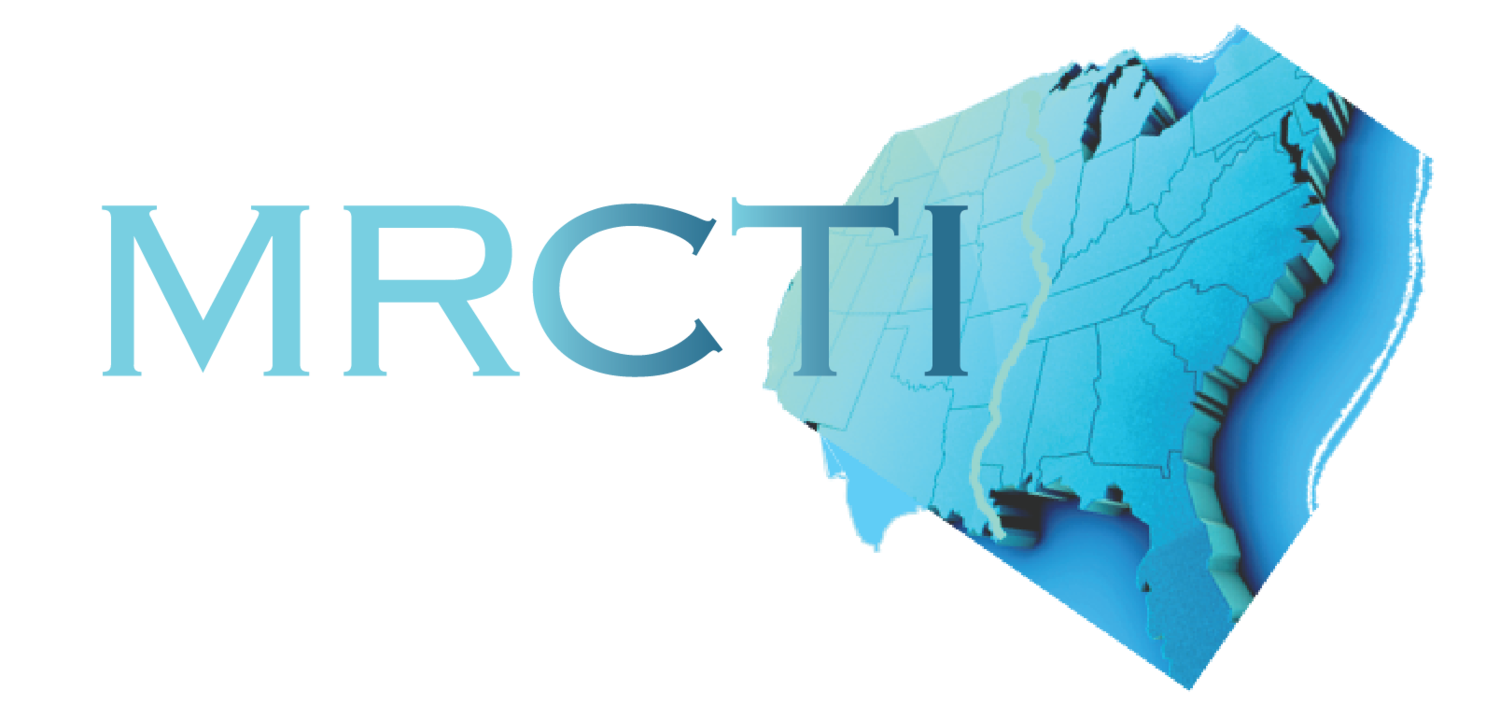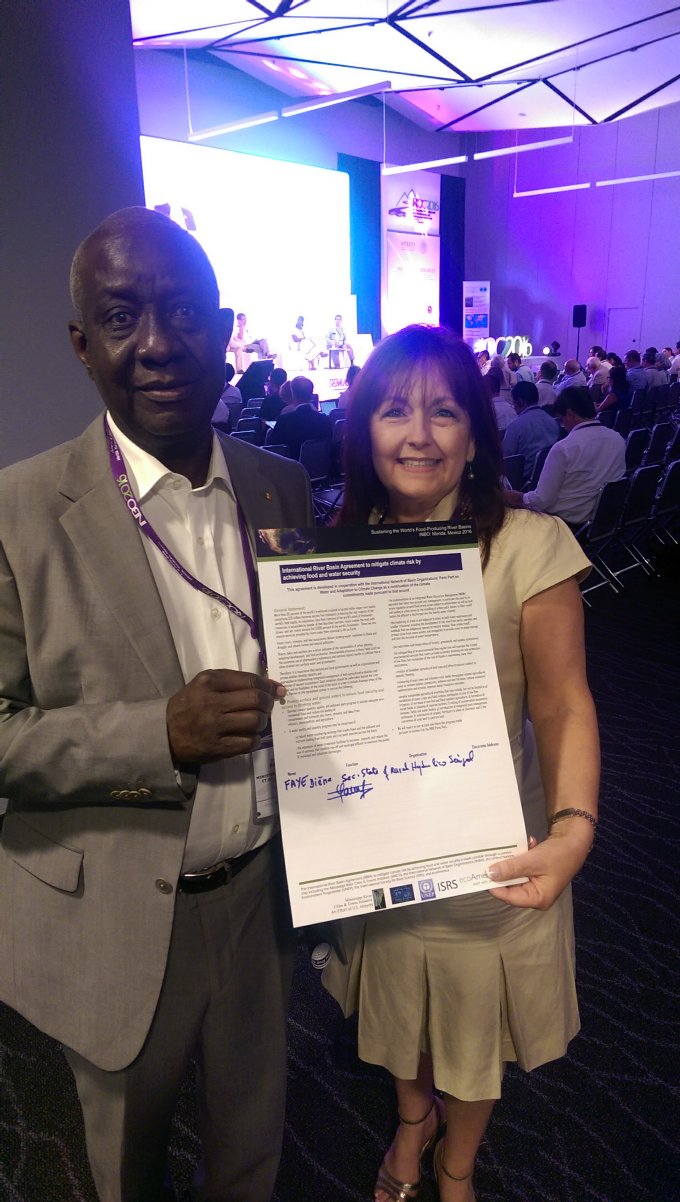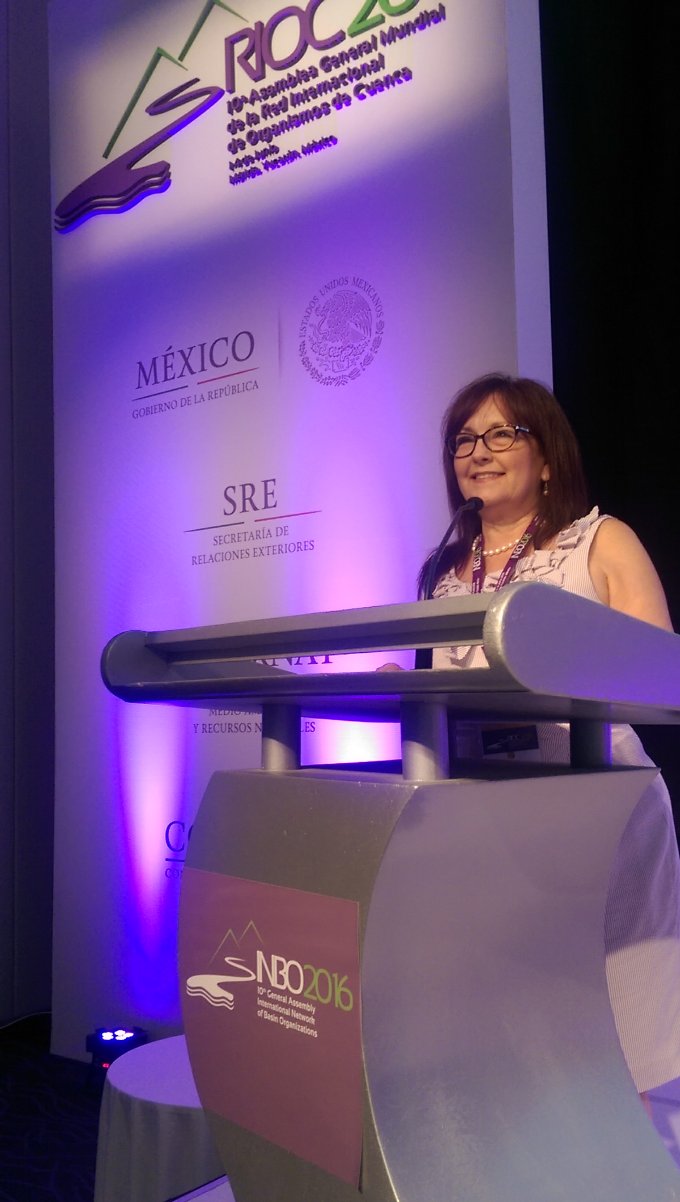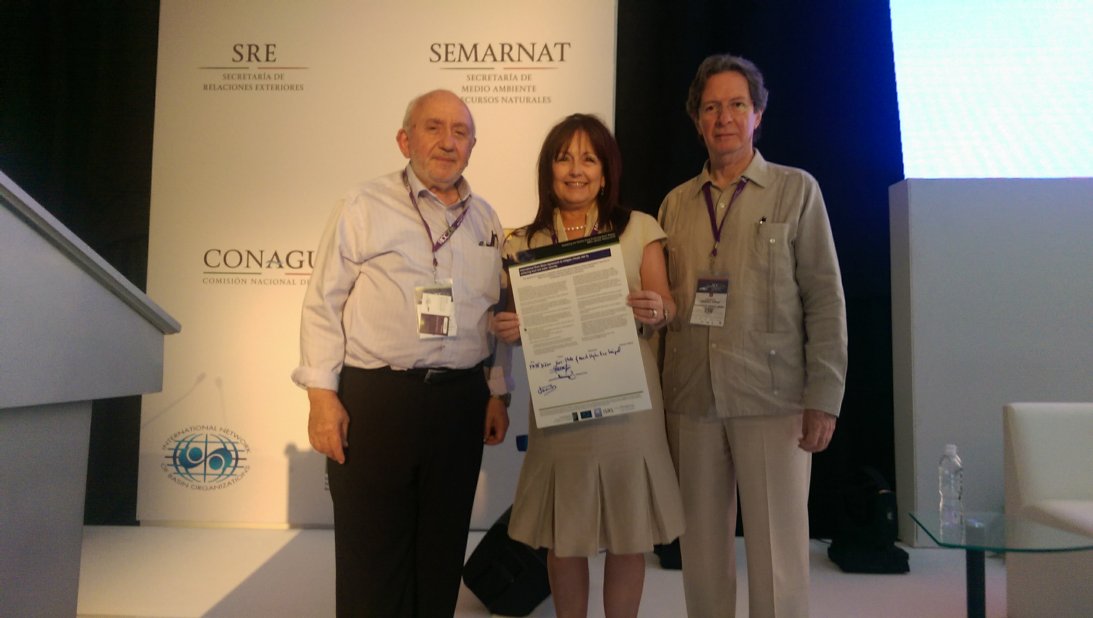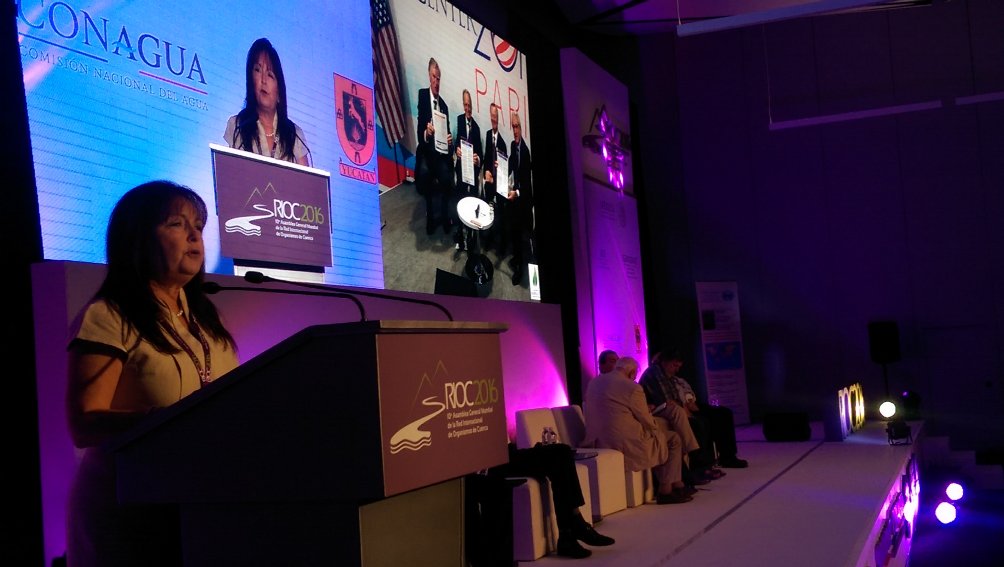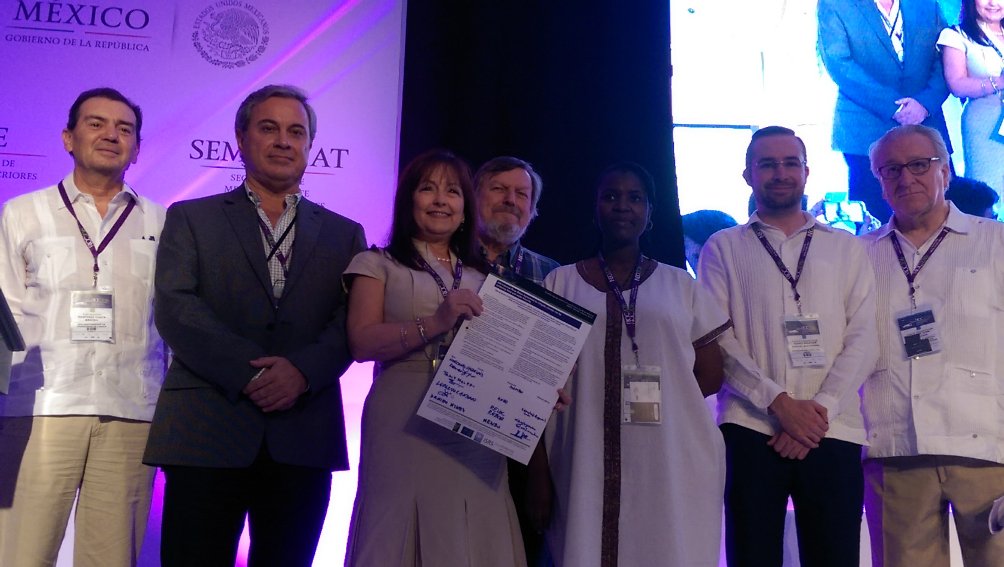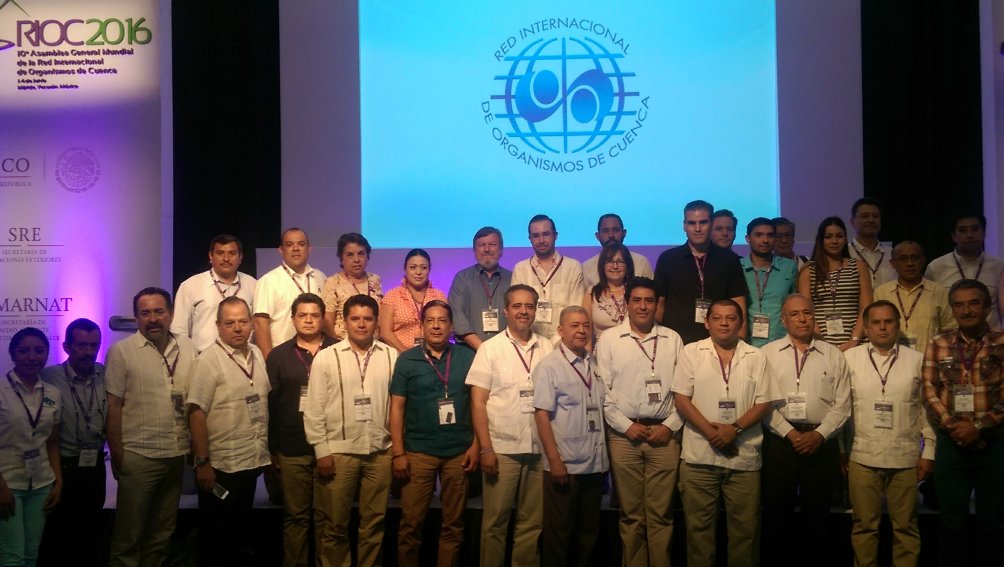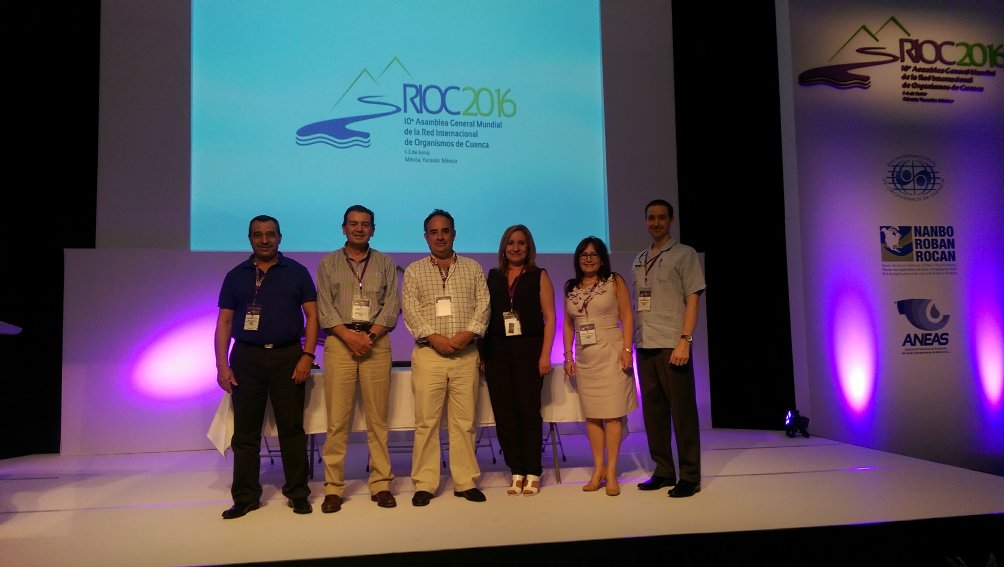For Immediate Release June 2, 2016
Contact: Jim Gwinner, JGwinner@LS2Group.com, 314-791-2774 Representatives are available for interview
MERIDA, MEXICO (June 2, 2016) - A delegation representing the Mississippi River Cities & Towns Initiative (MRCTI) announced new signatories to an international agreement to mitigate climate impact to the world’s food and freshwater supply originally developed during COP 21 in Paris. Mayor Belinda Constant of Gretna, LA, in partnership with the UN Environment Program, the International Network of Basin Organizations, the International Society for River Science, and ecoAmerica, presented today at the First Statutory Session of the World Assembly of River Basins.
Following presentation of the agreement, Mayor Constant presided over a signing of the agreement by river basin organizations comprised of more than 70 nations. “One of the greatest climate change threats to the world is a dramatic alteration to our food supply and decrease of freshwater. Louisiana is the gateway state for the Mississippi’s agricultural output making possible the United Stats’ only trade surplus. Me and my fellow mayors north all the way to Minnesota see the adoption of an international sustainability agreement imperative to saving river basins—including ours—from climate change and major population growth,” said Mayor Belinda Constant, Gretna, LA and MRCTI incoming Co-Chair.
“The adoption of this agreement by these four river basin organizations shows real progress from the work lead by St. Paul Mayor, MN, Chris Coleman in Paris this past December.”
In addition to Mayor Constant, MRCTI was represented by the Association’s Executive Director, Colin Wellenkamp, based in St. Louis. “A significant portion of the world’s food is produced by global corporations. The river basins of the world comprise the most intense areas of agricultural production. Thus, since production is conducted by global entities, river basins need to coordinate and pursue their water and food security interests on global scale as well; representing the world’s most agriculturally productive river, Mayors of the Mississippi are working toward such global coordination,” explained MRCTI Executive Director, Colin Wellenkamp.
The MRCTI agreement was signed today by Mr. Manuel Alejandro Gomez Melchor, President of the North American Network of Basin Organizations; Mr. Normand Cazelais, Secretary General of the North American Network of Basin Organizations; Mr. Lupercio Ziroldo Antonio, Secretary of the Brazilian Network of Basin Organizations; Mr. Ramiro Martinez Costa, President of the Mediterranean Network of Basin Organizations and Tracy Molefi, Chair of the African Network of Basin Organizations.
The agreement seeks to “protect surface and ground waters to ensure food security and access to drinking water” and contains a number of action items around developing a water quantity and quality program. Among these are:
- developing a robust water monitoring strategy that tracks flows as well as pollutant and nutrient loading;
- renaturing main-stem and tributary river banks throughout intense agricultural zones;
- employing sustainable agricultural practices such as installation of cover crops and field rotation techniques, use of low flow irrigation, formation of tiered fields, planting of riparian borders, setting of conservation easements, incorporation of integrated pest management techniques, and restoration of forests, grasslands, and river ecosystems.
More than 35 percent of the world’s traditional cropland is located within major global-river basins, producing the vast majority of the world’s food supply. Among these, the Mississippi River Basin ranks first in production capacity. In addition, less than 1 percent of the world’s stock of freshwater is readily accessible by people; of that less than 1 percent, rivers sustain the most withdraws, and yet only account for 0.006 percent of the world’s freshwater. The agreement seeks to mitigate the climate change threat to these basins just as these regions respond to an exploding global population that will require more food production over the next 35 years than in the last ten thousand.
MRCTI is an effort to bring national attention back to the Mississippi River—America’s most critical natural asset—and spearhead a new level of regional cooperation to make it more sustainable. As the ecological linchpin to the 31-state Mississippi River Basin, the River is responsible for creating $400 billion worth of U.S. GDP; providing drinking water for more than 20 million; transporting 40 percent of our nation’s agricultural output; and directly supporting 1.3 million jobs and millions more indirectly. More information is available at www.mrcti.org.
Contact: Jim Gwinner JGwinner@LS2Group.com, 314-791-2774
